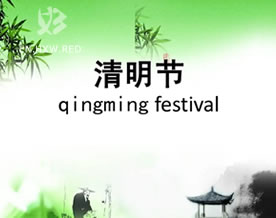有关清明节的英语作文(Qing Ming)

【范文七】
有关清明节的英语作文7
Celebrated two weeks after the vernal equinox, Tomb Sweeping Day is one of the few traditional Chinese holidays that follows the solar calendar-- typically falling on April 4, 5, or 6. Its Chinese name "Qing Ming" literally means "Clear Brightness," hinting at its importance as a celebration of Spring. Similar to the spring festivals of other cultures, Tomb Sweeping Day celebrates the rebirth of nature, while marking the beginning of the planting season and other outdoor activities.
Qing Ming Jie in Ancient Times
In ancient times, people celebrated Qing Ming Jie with dancing, singing, picnics, and kite flying. Colored boiled eggs would be broken to symbolize the opening of life. In the capital, the Emperor would plant trees on the palace grounds to celebrate the renewing nature of spring. In the villages, young men and women would court each other.
The Tomb Sweeping Day as Celebrated Today
With the passing of time, this celebration of life became a day to the honor past ancestors. Following folk religion, the Chinese believed that the spirits of deceased ancestors looked after the family. Sacrifices of food and spirit money could keep them happy, and the family would prosper through good harvests and more children.
Today, Chinese visit their family graves to tend to any underbrush that has grown. Weeds are pulled, and dirt swept away, and the family will set out offerings of food and spirit money. Unlike the sacrifices at a family’s home altar, the offerings at the tomb usually consist of dry, bland food. One theory is that since any number of ghosts rome around a grave area, the less appealing food will be consumed by the ancestors, and not be plundered by strangers.
en.hxw.red
